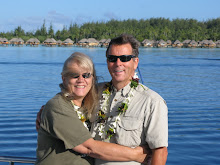Posted April 16, 2008
Bisphenol A (BPA), a compound in hard, clear polycarbonate plastics, is getting official scrutiny—and things are looking less than rosy for the controversial chemical. The U.S. government's National Toxicology Program yesterday agreed with a scientific panel that recently expressed concern about physiological changes that occur in people when they ingest BPA that has leached from plastics into their food. The Canadian government is even considering declaring the chemical toxic, reports today's New York Times http://health.usnews.com/articles/health/living-well-usn/2008/04/16/study-of-chemical-in-plastic-bottles-raises-alarm.html . This could set the stage for banning it from plastic baby bottles, water bottles, and food containers. At the very least, some people will be even more eager to buy foods and beverages in BPA-free containers.


BPA has raised concerns because it appears to mimic the effects of estrogen, interfering with hormone levels and cell signaling systems. Previous studies have shown that people exposed to high levels of BPA have a greater risk of developing uterine fibroids (noncancerous tumors that develop within or attach to the wall of the uterus, a female reproductive organ). breast cancer, decreased sperm counts, and prostate cancer. Babies and children are thought to be at greatest risk from the exposure. In fact, the scientific evidence warrants "a higher level of concern than those expressed by the expert [scientific] panel for possible effects of bisphenol A on prostate gland, mammary gland and early onset of puberty in exposed fetuses, infants and children," the NTP report concludes http://www.niehs.nih.gov/news/media/questions/sya-bpa.cfm .
Not surprisingly, sales of BPA-free baby bottles spiked after yesterday's news. "We tripled our sales overnight on the website and will be shipping an additional 300,000 bottles to Canada this week to meet an increased demand," says Ron Vigdor, president of BornFree, which manufactures BPA-free bottles. He adds that Babies "R" Us also indicated that it would be increasing its order to U.S. stores.
Beyond switching baby bottles, another way to lower exposure to BPA is to avoid heating foods and liquids in plastic containers that contain the compound. The amount of BPA that leaches out, the NTP says, may depend more on the temperature of the liquid, food, or container itself than on the age of the plastic bottle or dish. Check out this story on BPA and babies and this story on BPA and plastic containers http://health.usnews.com/usnews/health/articles/070808/8bisphenola.htm for more tips on minimizing you and your family's exposure to BPA.

No comments:
Post a Comment